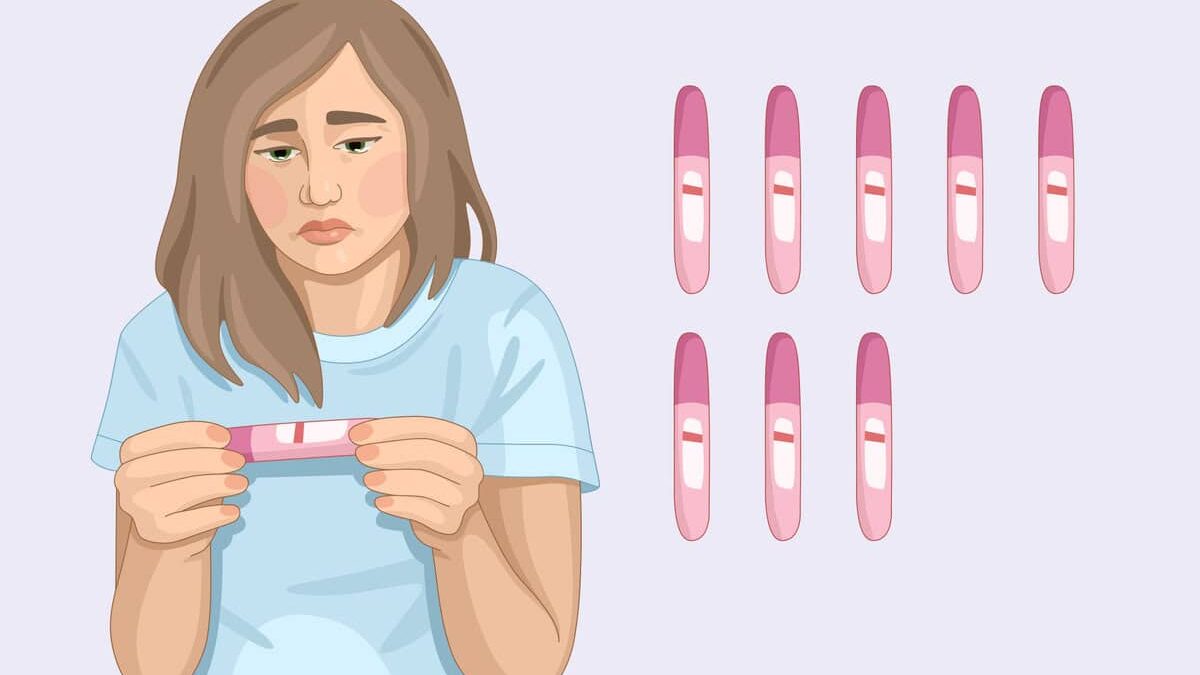Introduction
The inability to conceive after a year of regular, unprotected sexual activity is known as female sterility. It affects millions of women worldwide and has various underlying causes.
Women can take proactive steps toward improving their reproductive health by understanding unproductiveness causes and treatments. Stay with us to explore vital aspects of Female Infertility, from diagnosis to management and prevention strategies.
What Is Female Infertility?

Common Causes and Risk Factors
 Women who are unfit to conceive after engaging in vulnerable sexual exertion for a prolonged period of time are said to have womanish gravidity. It can be brought on by hormonal imbalances, reproductive organ problems, or other underpinning medical issues. Gravidity in women can be detected beforehand, adding the liability of generality and perfecting treatment issues.
Women who are unfit to conceive after engaging in vulnerable sexual exertion for a prolonged period of time are said to have womanish gravidity. It can be brought on by hormonal imbalances, reproductive organ problems, or other underpinning medical issues. Gravidity in women can be detected beforehand, adding the liability of generality and perfecting treatment issues.Hormonal Imbalances Affecting

Hormonal disorders like Poly cystic Ovary Syndrome (PCOS) and thyroid dysfunction can lead to ovulation irregularities and barrenness.
Structural Abnormalities and Female Infertility

Issues such as blocked Fallopian tubes, fibroid, or uterine abnormalities can hinder conception and contribute to female sterility.
Diagnosis and Medical Tests
Accurate diagnosis of Barrenness involves various tests that help determine the underlying cause and guide treatment.
Ovulation Testing and Female Infertility
Test kits for ovulation and hormone levels can be used to monitor ovulation patterns and identify irregularities associated with sterility.
Ultrasound and Imaging for Female Infertility

Hysterosalpingography (HSG) and pelvic ultrasounds look for structural problems in the reproductive organs that cause unfertilised.
Natural Remedies and Lifestyle Changes
Making lifestyle adjustments can significantly impact fertility and improve reproductive health.
Healthy Diet and Female Infertility Improvement
Fertility can be improved and hormone levels can be controlled by eating a well-balanced diet high in vitamins, minerals, and antioxidants.
Exercise and Weight Management for Female Infertility
 Regular exercise helps you keep your hormones in balance and lowers your risk of female infertility.
Regular exercise helps you keep your hormones in balance and lowers your risk of female infertility.
Treatment Options Available
Medical advancements offer various treatments that can help women overcome Female Infertility and conceive successfully.
Medications for Female Infertility Treatment
In women with Female Infertility, fertility medications like Clomiphene and Letrozole boost ovulation and increase the likelihood of conception.
Assisted Reproductive Techniques for Female Infertility
In-vitriol fertilisation (IVF) and intrauterine insemination (IUI) are advanced procedures that assist women facing Female Infertility challenges.
Prevention Strategies
Taking proactive measures can help minimise the risk of Female Infertility and enhance reproductive well-being.
Avoiding Harmful Substances and Female Infertility
Regular Health Checkups to Prevent Female Infertility
Routine gynaecological exams help detect potential issues early and prevent complications related to Female unfertilised.
FAQs
What are the early signs of fertility issues? Irregular periods, hormonal imbalances, and difficulty conceiving may indicate fertility concerns.
Can stress affect the ability to conceive? Yes, chronic stress can disrupt hormone levels and ovulation, impacting fertility.
Are there natural ways to boost fertility? Yes, a healthy diet, regular exercise, and stress management can improve fertility.
Does birth control affect fertility long-term? No, most women regain normal fertility after stopping birth control.
When should I see a doctor about fertility concerns? If you’ve been trying to conceive for over a year without success, consult a specialist.
Final Thoughts
The condition of womanish gravidity is complex and has multitudinous causes and treatments. Early opinion and life changes can ameliorate reproductive health and increase the chances of generality.
It’s possible to effectively manage and overcome womanish gravidity by taking visionary measures, similar as sustaining a healthy life and seeking medical backing when necessary. For further perceptive on womanish Gravidity, consult a healthcare provider or explore fertility support coffers.



